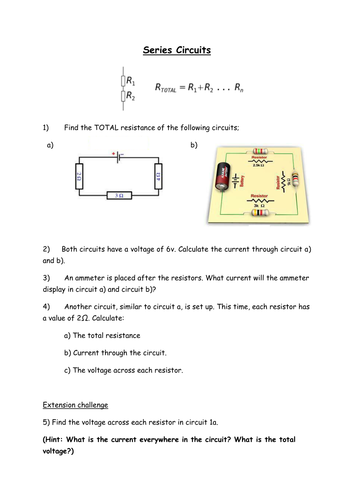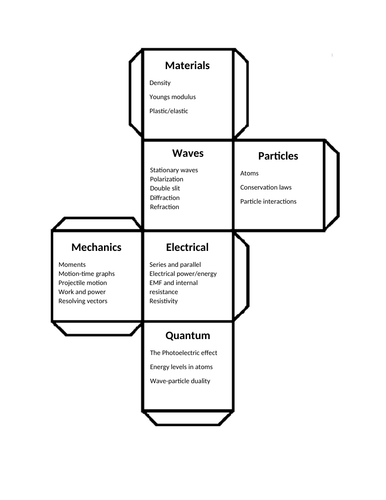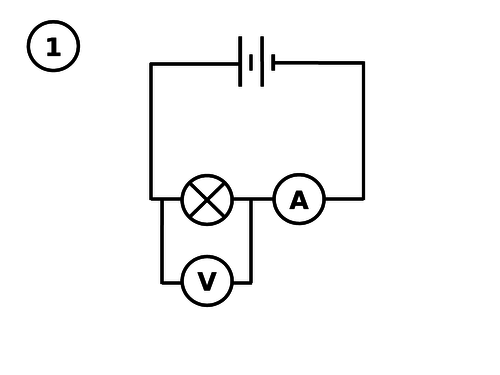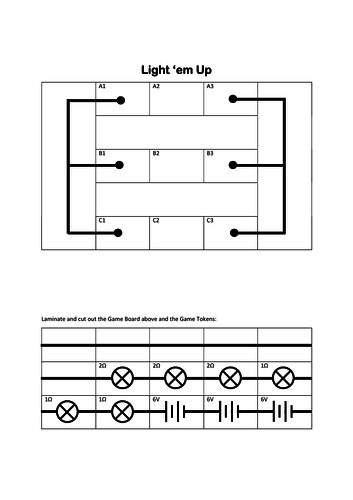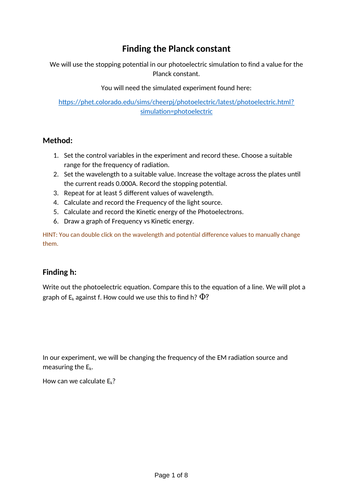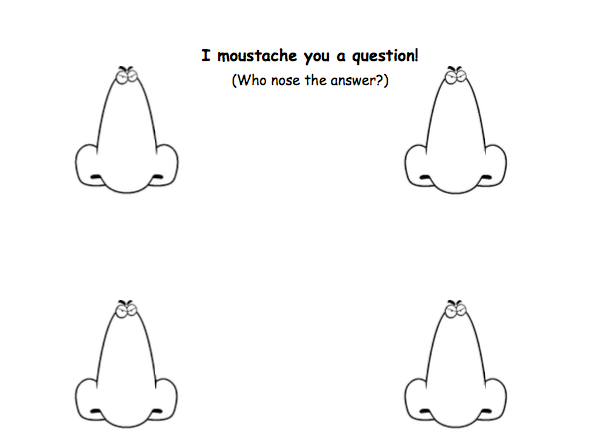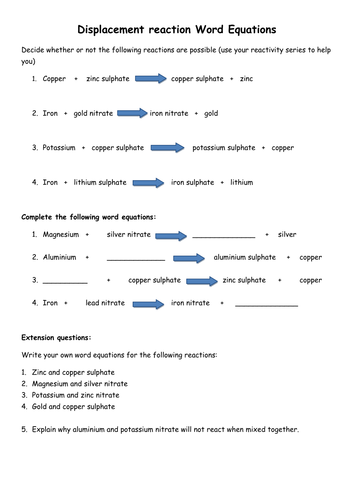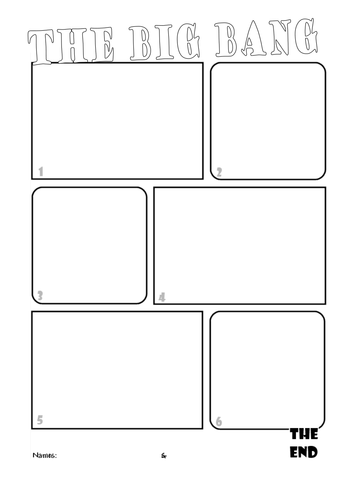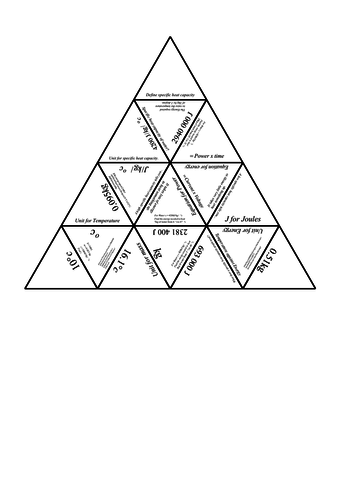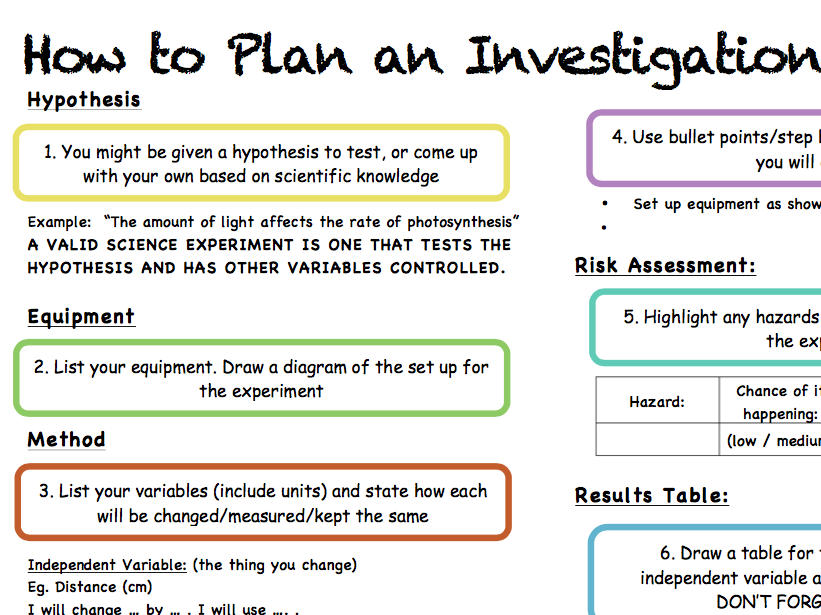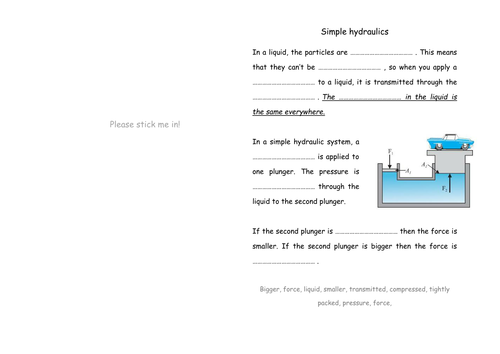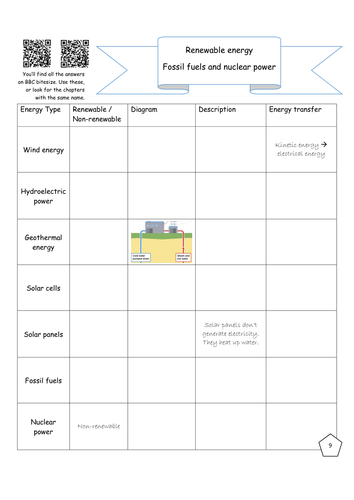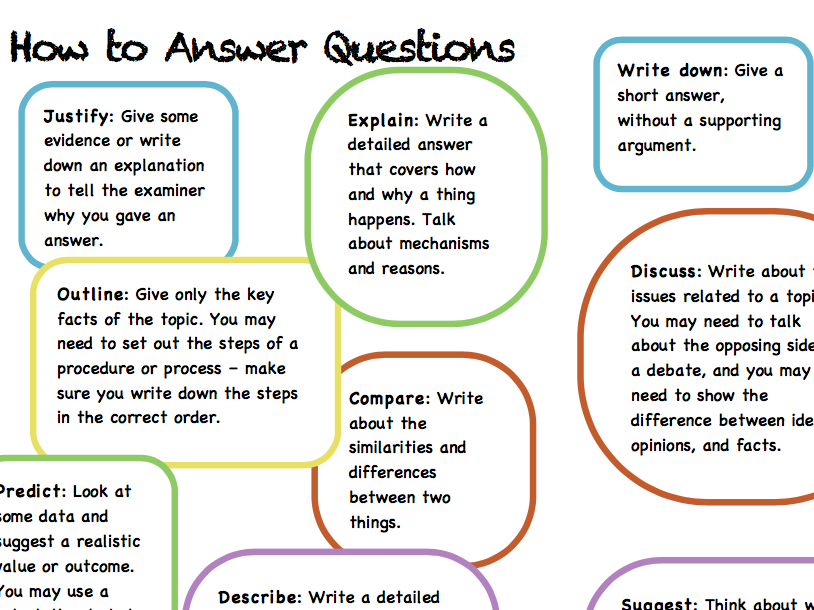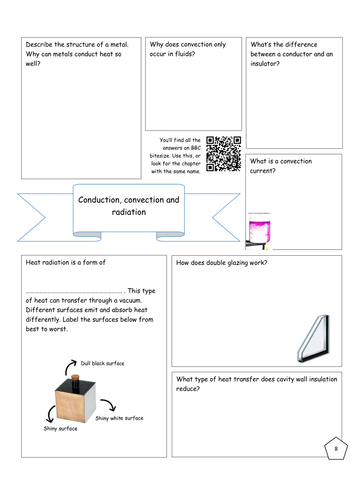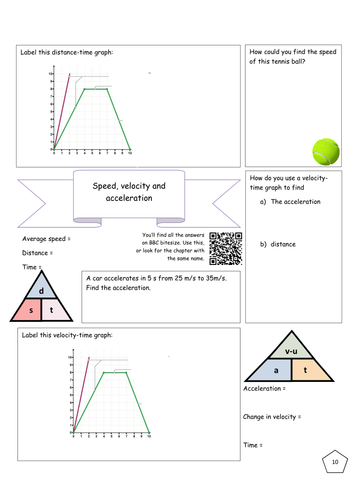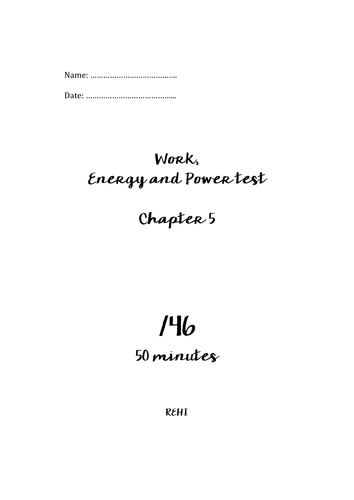
87Uploads
60k+Views
11k+Downloads
All resources

Resistors in series
A worksheet to develop students knowledge of resistance in series. Includes equation at the top, and questions which get progressively more difficult.

Silent debate questions on cloning and genetic testing
Print these on A3 paper. Place them round the room.
Students can visit each one, read what people have written, and write their own ideas and opinions down.
They make a great display when they're finished.

Synoptic Question dice for A-level Physics
A set of dice for making synoptic questions. Print on card, give A-level Physics students 2 dice each to build. When finished, they should roll the dice and write a question combining the two topics. They can then roll again!
It’s a great way of getting them into the head of the examiner and preparing them for questions pulling from lots of different topics.

Kirchhoff's whispers (a circuit building game)
Put pupils into 6 groups at 6 stations round the room.
Pupils are given a card with a circuit diagram on it, they must build the diagram and then flip over the card.
At the next station, they have to draw the circuit diagram and then take apart the circuits.
At the next station they have to build the circuit based on the diagram they see, then throw away the diagram.
They game continues for as long as you want it to!
This assesses and develops their circuit building and drawing skills.
It also shows them why it's so important to draw circuit diagrams carefully.
I've printed this double sided, then laminated so that they can draw the circuit on the back in whiteboard pen.
Enjoy!
Please review!

Light 'Em Up - The circuits board game
A game based on Battle ships. (Alternative name: Bulbs and Batt(ery) ships?)
“Ammeter on A3”
“Voltmeter from B1 to B3”
I used this as an entire lesson’s activity, pitting my students against each other in a knock out tournament. The game reinforces and assesses their knowledge of voltage and current in series and parallel. It can be adapted to differentiate by giving them suggested boards and including some numbers. I’ve included a cheat sheet page for this purpose.
How to set up:
Design your board.
Work out the voltage and current at different points on your board.
How to play:
The aim of the game is to correctly draw your opponent’s circuit. On your go, choose a square and ask for the current, or choose 2 squares and ask for the voltage across them. Your opponent has to be honest and correct! You can ask 1 question per go and take it in turns until someone can correctly draw the circuit.
Teacher instructions:
Pupils should be in pairs or 4s to play this game.
Each group will need 2 game boards, 2 sets of tokens and 2 answer sheets.
I suggest printing and laminating the game board page and cutting out the tokens, and then printing disposable answer sheets for them to draw and scribble on. You could even use Velcro on the back of the tokens so that they stick to the board.

Finding the Planck constant using Photoelectric Simulation
This worksheet allows pupils to use the stopping potential and wavelength found using the Photoelectric effect simulation, to draw a graph of kinetic energy against frequency and find a value for the Planck constant. They could also find the work function of the material using the y-intercept.
There is even a past paper question linked to the practical to encourage them to think about uncertainty.

Make your own question sheet - I moustache you a question
A silly worksheet.
Step 1: write questions on each moustache.
Step 2: write the answers on each nose.
Step 3: swap, cut out the moustaches and match them up!

Displacement reactions word equations
A worksheet to help students practise displacement reactions.
They can decide whether a reaction will take place using the reactivity series, practise writing out displacement reactions, and finally explain why a reaction won't take place.

Big Bang comic strip
Students order some statements describing the Big Bang Theory, then draw pictures to turn it into a comic strip.

Dinosaur food chains
I used these information cards on different dinosaurs to start a project with my year 7s.
I told my students that we were designing a fish tank, but for dinosaurs! They had to choose their favourite for their tank. They had to think about other dinosaurs they’d have to include to create a food chain for their pet, as well as the habitat. More able students also thoughts about other things they might want to include based no the adaptations of their chosen dinosaur.
Alternatively, students could use these to make a food chain, or food web, and the extension task could be to write about their adaptations or habitats.

Specific heat capacity puzzle
A Tarsia puzzle on Specific heat capacity. Includes units, and equation questions to test concept and maths.
Works well as a class competition, or would make a nice display.
Pupils cut out puzzle pieces to complete one each I’ve included a solution as well.

How to plan an investigation / experiment in Science
A help sheet to tell students about how to plan a Scientific investigation or experiment.
I've laminated these, and put them in a folder on the display board so students can help themselves if they need additional support.

Hydraulics and pressure in fluids
A differentiated worksheet, designed to help students to understand pressure in fluids and how simple hydraulic systems work.
Starts with a gap fill, ends with pressure calculations.

Bitesize Energy revision - Renewable energy, fossil fuels and nuclear power
This is a worksheet in a series made to summarise and recap topics from GCSE Physics. This one has two versions for dual award and separate scientists.
All worksheets are based on BBC bitesize pages with the same name, with a QR code to guide students to the correct page. All the answers to the front page can be found there.
There is then a 15 mark exam-style question to test their new knowledge. Every worksheet in the series is out of 15 so students can track their progress. I've used them with year 11, and set them as homework, that way they are forced to revise early!
This is designed to help revise for the Edexcel iGCSE in Physics, but is fairly universal and should fit with any exam board.
Includes PDFs for easy printing, and word documents for editing.

Forces word loop game
A word loop game on forces.
Turn them into cards, and them out one per student (this is for 21 students). One person reads out a question, the student with the corresponding answer reads out the answer and their question etc. until you get back to the start.
Great as a plenary or recap starter.

How to draw a graph Science help sheet
A help sheet to tell students about how to draw and interpret a graph.
I've laminated these, and put them in a folder on the display board so students can help themselves if they need additional support.

How to answer questions help sheet - science command words
A help sheet to tell students about command words used in Science questions.
I've laminated these, and put them in a folder on the display board so students can help themselves if they need additional support.

Bitesize Energy revision - Conduction, convection and radiation
This is a worksheet in a series made to summarise and recap topics from GCSE Physics.
All worksheets are based on BBC bitesize pages with the same name, with a QR code to guide students to the correct page. All the answers to the front page can be found there.
There is then a 15 mark exam-style question to test their new knowledge. Every worksheet in the series is out of 15 so students can track their progress. I've used them with year 11, and set them as homework, that way they are forced to revise early!
This is designed to help revise for the Edexcel iGCSE in Physics, but is fairly universal and should fit with any exam board.
Includes PDFs for easy printing, and word documents for editing.

Bitesize Forces/motion revision - Speed, velocity, acceleration
This is a worksheet in a series made to summarise and recap topics from GCSE Physics.
All worksheets are based on BBC bitesize pages with the same name, with a QR code to guide students to the correct page. All the answers to the front page can be found there.
There is then a 15 mark exam-style question to test their new knowledge. Every worksheet in the series is out of 15 so students can track their progress. I've used them with year 11, and set them as homework, that way they are forced to revise early!
This is designed to help revise for the Edexcel iGCSE in Physics, but is fairly universal and should fit with any exam board.
Includes PDFs for easy printing, and word documents for editing.

Work, Energy and Power test, OCR KS5 A level Physics
This is a 60 minute assessment made up of past paper questions from the OCR Physics A - H158, H558 course.

